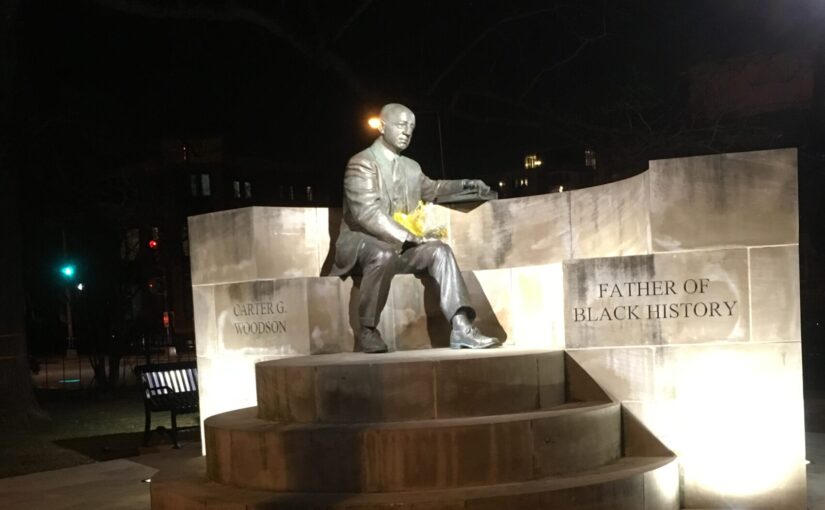It’s Black History Month, so I am continuing with the series of posts regarding Shaw resident and Father of Black History, Carter G. Woodson and his book The Mis-Education of the Negro, published in 1933.
Continuing from part 1, which was covering the first of two themes I pulled from this chapter. The second theme was that college educated were a drag on Black businesses.
Woodson presents us with this scene:
Recently the author saw the need for a change of attitude when a young woman came almost directly to his office after her graduation from a business school to seek employment. After hearing her story he finally told her that he would give her a trial at fifteen dollars a week.
“Fifteen dollars a week!” she cried, “I cannot live on that, sir.”
“I do not see why you cannot,” he replied. “You have lived for some time already, and you say that you have never had permanent employment, and you have none at all now.”
“But a woman has to dress and to pay board,” said she; “and how can she do it on such a pittance?”
The amount offered was small, but it was a great deal more than she is worth at present. In fact, during the first six or nine months of her connection with some enterprise it will be of more service to her than she will be to the firm. Coming out of school without experience, she will be a drag on a business until she learns to discharge some definite function in it. Instead of requiring the firm to pay her she should pay it for training her. Negro business today, then, finds the “mis-educated employees” its heaviest burden. Thousands of graduates of white business schools spend years in establishments in undergoing apprenticeship without pay and rejoice to have the opportunity thus to learn how to do things.
I’m not sure if HBCUs were offering valuable internship programs at the time. Education is great, but from my own experience, internship programs provide some thin proof the student knows how to do real work. Woodson mentions an unfortunate job program for HBCU graduates.
Not long ago a firm of Washington, D. C., appealed to the graduates of several of our colleges and offered them an inviting proposition on the commission basis, but only five of the hundreds appealed to responded and only two of the five gave satisfaction. Another would have succeeded, but he was not honest in handling money because he had learned to purloin the treasury of the athletic organization while in college. All of the others, however, were anxious to serve somewhere in an office for a small wage a week.

